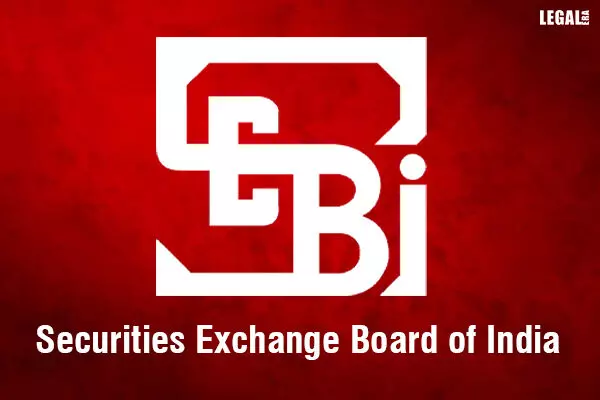- Home
- News
- Articles+
- Aerospace
- Agriculture
- Alternate Dispute Resolution
- Banking and Finance
- Bankruptcy
- Book Review
- Bribery & Corruption
- Commercial Litigation
- Competition Law
- Conference Reports
- Consumer Products
- Contract
- Corporate Governance
- Corporate Law
- Covid-19
- Cryptocurrency
- Cybersecurity
- Data Protection
- Defence
- Digital Economy
- E-commerce
- Employment Law
- Energy and Natural Resources
- Entertainment and Sports Law
- Environmental Law
- FDI
- Food and Beverage
- Health Care
- IBC Diaries
- Insurance Law
- Intellectual Property
- International Law
- Know the Law
- Labour Laws
- Litigation
- Litigation Funding
- Manufacturing
- Mergers & Acquisitions
- NFTs
- Privacy
- Private Equity
- Project Finance
- Real Estate
- Risk and Compliance
- Technology Media and Telecom
- Tributes
- Zoom In
- Take On Board
- In Focus
- Law & Policy and Regulation
- IP & Tech Era
- Viewpoint
- Arbitration & Mediation
- Tax
- Student Corner
- AI
- ESG
- Gaming
- Inclusion & Diversity
- Law Firms
- In-House
- Rankings
- E-Magazine
- Legal Era TV
- Events
- News
- Articles
- Aerospace
- Agriculture
- Alternate Dispute Resolution
- Banking and Finance
- Bankruptcy
- Book Review
- Bribery & Corruption
- Commercial Litigation
- Competition Law
- Conference Reports
- Consumer Products
- Contract
- Corporate Governance
- Corporate Law
- Covid-19
- Cryptocurrency
- Cybersecurity
- Data Protection
- Defence
- Digital Economy
- E-commerce
- Employment Law
- Energy and Natural Resources
- Entertainment and Sports Law
- Environmental Law
- FDI
- Food and Beverage
- Health Care
- IBC Diaries
- Insurance Law
- Intellectual Property
- International Law
- Know the Law
- Labour Laws
- Litigation
- Litigation Funding
- Manufacturing
- Mergers & Acquisitions
- NFTs
- Privacy
- Private Equity
- Project Finance
- Real Estate
- Risk and Compliance
- Technology Media and Telecom
- Tributes
- Zoom In
- Take On Board
- In Focus
- Law & Policy and Regulation
- IP & Tech Era
- Viewpoint
- Arbitration & Mediation
- Tax
- Student Corner
- AI
- ESG
- Gaming
- Inclusion & Diversity
- Law Firms
- In-House
- Rankings
- E-Magazine
- Legal Era TV
- Events
SEBI bars brokers to pledge clients’ funds as bank guarantees

SEBI bars brokers to pledge clients’ funds as bank guarantees
Imposes additional monitoring and reporting on stock exchanges and clearing corporations
The Securities and Exchange Board of India (SEBI) has prohibited the utilization of clients’ funds for the creation of bank guarantees (BGs). This move of the market regulator will add to the working capital requirements of the stockbrokers.
Currently, stockbrokers and clearing members pledge client funds with banks, which in turn issue BGs to clearing corporations for higher amounts. This exposes the market, especially the client’s funds, to market risks.
SEBI has directed that from the beginning of May, no new BGs would be created out of clients’ funds by stockbrokers and clearing members. Also, the existing BGs would be wound down this year by 30 September.
It clarified that the provisions of the framework would not be applicable to proprietary funds of stockbrokers and clearing members in any segment. Also, any proprietary funds of the stockbroker deposited with the capital market in the capacity of a client will not fall under the provisions.
Beginning on 1 June, the exchanges and clearing corporations will need to submit their collateral data with further classifications. This would include the total BG amount as collateral raised by a broker or clearing member, the portion marked as clients’ funds out of the total BGs, and the total portion marked as proprietary funds out of the total BGs raised.
As of now, stockbrokers and clearing members have been directed to provide a certificate by a statutory auditor confirming the implementation of the mechanism. The certificate has to be submitted to the stock exchanges or clearing corporations by 16 October.
Moreover, stock exchanges and clearing corporations have been mandated to verify compliance with the provisions of the SEBI circular in their periodic inspections and reporting. They have been advised to evolve adequate mechanisms to address cases of those who do not comply with the new norms.



